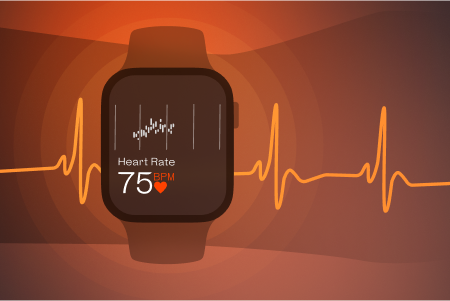
Measuring Resting Heart Rate
From manual pulse counts to the latest in app technology, dive into the transformative journey of heart rate monitoring

Though melatonin is widely considered to help with insomnia, headaches, and depression, the truth is a bit more complicated. Here’s what the science says.
Melatonin is the most common sleeping medication found in pharmacies worldwide. It’s available in many forms, including pills, capsules, drops, lozenges, and even gummies. It’s a natural substance in that the melatonin in medicine is no different than the melatonin produced by your body. And it does truly induce sleep. So shouldn’t it stand to reason that taking a melatonin pill will rid you of insomnia? The answer is not so straightforward.
Melatonin is an ancient molecule. The first organisms to synthesize melatonin lived hundreds of millions of years ago, after which many animal and even plant species have found various uses for it.
The hormone’s best-known function is as a reminder, sending your body a cue that it’s time for sleep. It might seem simple — after all, it’s easy to tell that it’s getting dark out — but darkness is something we perceive with our retinal cones and rods, which are used to discern shapes, colors, and motion. Our eyes use a completely different set of receptors to tell the difference between night and day. These receptors then pass this information on to a special region of the brain so it can keep track of what time of day it is.
The brain, in turn, sends signals to the body’s various organs using melatonin. With the arrival of darkness, more melatonin is released into the bloodstream. When it starts getting lighter out, production of the sleep hormone winds down. The body perceives that it’s morning, alerts the nervous system, and we wake up. This is how we use an external signal, in this case, light, to regulate our circadian rhythms, including our cells’ innate ability to adjust their activity level.
Interestingly, several experiments have found that in the absence of sunlight, though our circadian rhythms continue, they don’t follow a strict 24-hour cycle. Instead, they gradually get longer. These experiments suggest that our “internal clock” doesn’t actually line up with the Earth’s 24-hour day and night cycle.
Melatonin isn’t only synthesized in the brain — it’s also produced by cells in the liver, intestines, and even eyes and participates in many important, life-sustaining processes. It functions as an antioxidant and also plays a role in digestive and sexual hormone production.
Yes, if your circadian rhythm is the problem. Melatonin’s function is to set your body’s internal clock, making it an effective treatment for a disrupted circadian rhythm. For example, it can help with Delayed Sleep Phase Disorder, where a person can’t fall asleep until late into the night and has difficulty waking up early in the morning, meaning their sleep schedule is just shifted forward. Another way your circadian rhythm might be disrupted is when you’re changing time zones. The Cochrane Library Review recommends melatonin to all adults who travel across five or more time zones. If you’re traveling across 2-4 time zones, melatonin is recommended only if you’re having difficulty falling asleep.
If your insomnia is caused by something other than a disrupted internal clock, odds are that melatonin won’t help you much. Melatonin doesn’t make your body fall asleep, it just signals that it’s time to get to bed. Sometimes those signals just aren’t enough, like if your nervous system is in an agitated or alarmed state. Studies have shown that melatonin helps patients with secondary insomnia, i.e., insomnia caused by other disorders, sleep an average of 24 minutes longer. Whether the quality of the extra sleep they’re getting is good, however, is still an open question.
The American Academy of Sleep Medicine (AASM) considers melatonin, in conjunction with cognitive behavioral therapy, to be the most promising treatment for chronic insomnia (trouble sleeping that lasts for three or more weeks.) However, there isn’t a lot of data on this treatment’s long-term effects. Melatonin does have one advantage over other sleeping aids — it’s relatively safe, doesn’t affect brain activity during sleep, and doesn’t cause withdrawal symptoms or increased insomnia symptoms when you stop using it.
Melatonin is hailed as a headache cure and immune system booster and is said to help with symptoms of depression and ADHD. The full range of things that could be treated by melatonin could be vast, but the research is not so clear-cut.
So far, it is unclear. Stress headaches tend to be caused by pressure and pain in the neck or facial muscles or by visual overstimulation. But they could also be caused by disrupted sleep, in which case melatonin could possibly prevent them. Sadly, there isn’t enough scientific evidence to back up this theory. The same goes for preventative migraine treatment.
Only preventatively. Seasonal Affective Disorder (SAD), or seasonal depression, usually strikes in the fall or winter, possibly due to changes in your circadian rhythm caused by the lack of light during those seasons. Since melatonin regulates the circadian rhythm, one could assume that taking it could nip SAD symptoms in the bud. Some studies have demonstrated that a daily dose of melatonin can soften acute SAD symptoms. Still, a meta-review of the results concluded that melatonin doesn’t help reduce SAD, anxiety, or bipolar symptoms after their onset, but taking it preventatively shows promise. Taking it before the season starts could prevent the disorder’s symptoms from manifesting, or at least manifest in a much milder form if they appear at all.
Melatonin is tied to weight in a tricky way. Firstly, it activates specific fat cells, brown and beige, which regulate thermogenesis and calorie burning. The more brown and beige fat cells are in your body, the more control it has over its weight. Secondly, melatonin metabolization is tied to the hormones cortisol (stress response), ghrelin (hunger), and leptin (satiation). People with obesity have increased cortisol and ghrelin levels and reduced leptin. These facts lead scientists to the idea of stimulating weight loss with melatonin supplements. Some limited experiments on animals and humans have shown promising results (1, 2, 3). One study had regular shift workers with sleep disorders take melatonin, after which their body mass, waist, and hip circumference numbers all decreased without any other changes to diet or lifestyle. However, there’s an important caveat: all of the study’s participants already had low levels of natural melatonin and trouble sleeping. We don’t know if melatonin will affect healthy people in the same way.
Yes, but there are nuances. Melatonin interacts with the immune system in a pretty complex way, acting on both innate and learned immune responses. In the latter case, it acts like an immunomodulator, boosting both the speed and effectiveness of the body’s immune response. But if the immune response to a given threat would have been powerful already (like in the case of septic shock), melatonin could actually do the reverse and suppress the inflammation.
Melatonin also acts as an antioxidant, working against cell-damaging oxidative stress. This effect is being studied for treating prematurely born infants, who often require oxygen therapy while in the ICU. Oxygen creates oxidative stress, but melatonin seems to lessen its effects. While all of this seems to point to melatonin being helpful for your immune system, in truth, there is still a lot that needs to be understood about melatonin’s effects. For now, there’s no reason to take melatonin as an immune system booster.
Unclear. According to data gathered by a Cleveland Clinic study, taking melatonin reduces the risk of contracting COVID by 28%, thanks to the hormone’s anti-inflammatory and antioxidant properties. In another study, scientists found that taking melatonin for two weeks before vaccination can help you sleep better, improving your immune system’s response to the vaccine. If you take melatonin for a month after the shot, your immune response could be stronger, prolonging the immunity given by the vaccine. But this isn’t always true — melatonin could also potentially suppress your immune system’s overreaction to a COVID infection, reducing the vaccine’s effectiveness.
Except for correcting circadian rhythms, any medical application of melatonin so far is questionable since most of the research t this subject was either conducted on animals or small groups of humans. Such studies aren’t always able to isolate their data from the influence of other potential factors.
Melatonin also acts as an antioxidant, working against cell-damaging oxidative stress. This effect is being studied for treating prematurely born infants, who often require oxygen therapy while in the ICU. Oxygen creates oxidative stress, but melatonin seems to lessen its effects. While all of this seems to point to melatonin being helpful for your immune system, in truth, there is still a lot that needs to be understood about melatonin’s effects. For now, there’s no reason to take melatonin as an immune system booster.
With age, natural melatonin production in our brains decreases. Supplementing with melatonin at 55-60 years improves sleep quality, increases morning energy levels and overall quality of life. And unlike with other sleeping pills, there aren’t dangerous side effects like cognitive disorders or serious bone-breaking falls. However, you should be careful if taking other medications as melatonin could hinder or amplify their effectiveness could be hindered or amplified by melatonin. It’s a good idea to discuss any potentially harmful effects with your doctor before taking melatonin.
Except for correcting circadian rhythms, any medical application of melatonin so far is questionable since most of the research t this subject was either conducted on animals or small groups of humans. Such studies aren’t always able to isolate their data from the influence of other potential factors.
Melatonin also acts as an antioxidant, working against cell-damaging oxidative stress. This effect is being studied for treating prematurely born infants, who often require oxygen therapy while in the ICU. Oxygen creates oxidative stress, but melatonin seems to lessen its effects. While all of this seems to point to melatonin being helpful for your immune system, in truth, there is still a lot that needs to be understood about melatonin’s effects. For now, there’s no reason to take melatonin as an immune system booster.
Melatonin is considered harmless when taken for a short time, for example, to restore a disrupted sleep cycle. Unfortunately, there isn’t enough data on the effects of long-term use, and the supplement comes with a few risks and contraindications to keep in mind.
Melatonin comes in two formulas: immediate and time-release. An immediate-release pill dissolves as soon as you take it and is then quickly absorbed into the bloodstream. After four hours, 90% of it is already metabolized by your body. Time-release supplements dissolve slower, affecting you more similarly to natural melatonin, which your body slowly produces throughout the night.
If your goal is to treat a one-time problem like jet lag, immediate-release melatonin will work fine. For other problems, it’s better to use time-release melatonin. It’s best to avoid unregulated supplements and opt instead for tested and regulated medication, which is more likely to have the melatonin content and dosage that the manufacturer says it has. Getting the medicine-quality substance, however, requires a prescription from your doctor.
Immediate-acting melatonin should be taken 30 minutes before sleep, while time-release formulas can be taken 1-2 hours before bed. Finding the right dose is also tricky: research on melatonin’s effectiveness often focuses on different treatment applications, and its effectiveness is highly reliant on the taker’s specific problem and their individual metabolism. One study found that in healthy humans who take a .1-.3mg supplement, blood melatonin levels reach a naturally occurring level, but if they took over 1mg, melatonin levels exceeded the natural physiological level.
No matter what, the supplement dose should not exceed 3mg a day. Taking more than that is likely to result in daytime drowsiness and other side effects. It’s best to consult a doctor to find the right solution.
Welltory x Reminder, 07 Oct. 2022

From manual pulse counts to the latest in app technology, dive into the transformative journey of heart rate monitoring
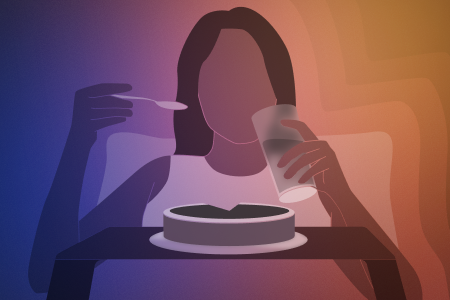
Discover the intricate relationship between late-night eating and its impact on sleep duration and quality
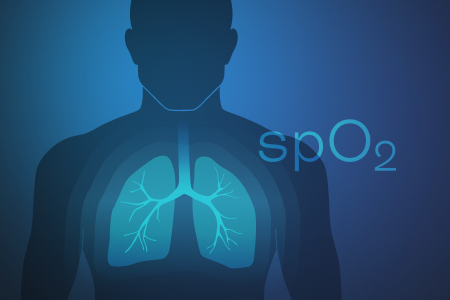
From boosting cognitive function to enhancing physical performance, discover the impact of blood oxygen levels on various aspects of health

The relationship between stress and productivity and how Welltory can help you plan better
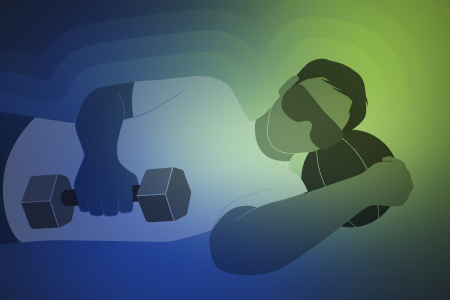
Does sleeping burn any calories, should you exercise right before bed and how much do you need to sleep to burn a 1000 Cal
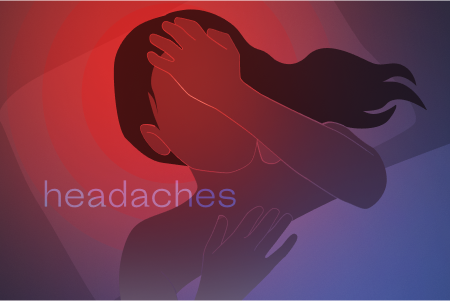
All you needed to know about headaches at night – types of nighttime headaches, their causes, possible treatment and how to avoid them.
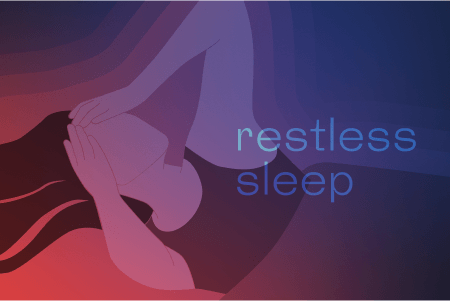
Learn how to improve your sleep quality with Welltory sleep tracking capabilities and our Top-10 tips on sleeping healthier
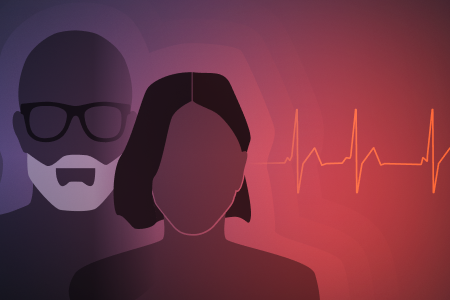
What factors determine your heart rate and how it differs among persons of different age and biological sex
 App Store
App Store
 Google Play
Google Play
 Huawei AppGallery
Huawei AppGallery
 Galaxy Store
Galaxy Store







